BMJ :易感染患者服用维生素D或可避免呼吸道感染
2013-05-06 liuygi 互联网
易感染患者服用大剂量维生素D 12个月以上,可降低他们发生呼吸道感染的风险,从而也能减少他们对抗生素的需求。该结论来自卡若琳斯卡医学院和卡若琳斯卡大学医院的研究人员所做的一项新研究,该研究结果在线发表在科学期刊《英国医学杂志》(BMJ Open)上。 卡若琳斯卡大学医院免疫缺陷室医生、卡若琳斯卡研究所实验室医学部研究人员Peter Bergman说,“我们的研究对多发性感染或有免疫缺陷(如缺乏某
易感染患者服用大剂量维生素D 12个月以上,可降低他们发生呼吸道感染的风险,从而也能减少他们对抗生素的需求。该结论来自卡若琳斯卡医学院和卡若琳斯卡大学医院的研究人员所做的一项新研究,该研究结果在线发表在科学期刊《英国医学杂志》(BMJ Open)上。
卡若琳斯卡大学医院免疫缺陷室医生、卡若琳斯卡研究所实验室医学部研究人员Peter Bergman说,“我们的研究对多发性感染或有免疫缺陷(如缺乏某种抗体)的患者具有重要意义,而且也能防止因过量使用抗生素而产生的耐药。但是我们的研究并不意味着维生素D有助于其他健康人群抵抗寻常的、暂时性的呼吸道感染。”
维生素D可以通过日光照射在皮肤内合成,也可以通过某些食物获得。在瑞典,人们血液中的维生素D是随季节变化的,在较暗的半年里,它都处于低谷。研究显示,低水平维生素D能增加感染风险,此外,该维生素也能激活免疫系统。
此项研究旨在确定使用维生素D治疗是否能预防和降低呼吸道感染,特别是对易感染患者。来自免疫缺陷室的所有140名患者在参加研究前的呼吸道疾病症状均超过42天。这些患者被分成两组,一组服用相对高剂量维生素D,另一组服用安慰剂。在1年的研究期内,他们被要求每天记录自己的健康状况。结果显示,服用维生素D组呼吸道感染症状减少了约四分之一,而抗生素用量则下降了差不多一半。对所有的患者,维生素D治疗也有较好的耐受性,并没有发生严重的不良反应。
维生素D对呼吸道感染的效用是有争议的。最近发表在科学杂志《美国医学会杂志》(JAMA)上的一项来自新西兰的研究显示,维生素D并没有降低呼吸道感染的发生率或严重度。然而本研究在几个重要方面不同于JAMA发表的那项研究,因此它们之间的结论也并不相同。JAMA发表的论文研究的是一组健康个体,他们最初血液中的维生素D水平正常。然后大剂量应用维生素D (单次大剂量,但次数较少),最终研究认为其有效性不如常规剂量。
与Bergman博士同为该研究第一作者的博士生Anna-Carin Norlin说,“与新西兰的研究最重要的区别可能是,我们的研究参与者的起始维生素D水平要低很多。来自先前研究的证据显示,补充维生素D仅对维生素D水平低于建议水平的患者有效,提示多发性感染患者应该检查维生素D水平。”

doi:10.1136/bmjopen-2012-001663
PMC:
PMID:
Vitamin D3 supplementation in patients with frequent respiratory tract infections: a randomised and double-blind intervention study
Peter Bergman1,2,3, Anna-Carin Norlin2,4, Susanne Hansen2, Rokeya Sultana Rekha5, Birgitta Agerberth5, Linda Björkhem-Bergman6, Lena Ekström6, Jonatan D Lindh6, Jan Andersson3
Background Low serum levels of 25-hydroxyvitamin D3 are associated with an increased risk of respiratory tract infections (RTIs). Clinical trials with vitamin D3 against various infections have been carried out but data are so far not conclusive. Thus, there is a need for additional randomised controlled trials of effects of vitamin D3 on infections. Objective To investigate if supplementation with vitamin D3 could reduce infectious symptoms and antibiotic consumption among patients with antibody deficiency or frequent RTIs. Design A double-blind randomised controlled trial. Setting Karolinska University Hospital, Huddinge. Participants 140 patients with antibody deficiency (selective IgA subclass deficiency, IgG subclass deficiency, common variable immune disorder) and patients with increased susceptibility to RTIs (>4 bacterial RTIs/year) but without immunological diagnosis. Intervention Vitamin D3 (4000 IU) or placebo was given daily for 1 year. Primary and secondary outcome measures The primary endpoint was an infectious score based on five parameters: symptoms from respiratory tract, ears and sinuses, malaise and antibiotic consumption. Secondary endpoints were serum levels of 25-hydroxyvitamin D3, microbiological findings and levels of antimicrobial peptides (LL-37, HNP1–3) in nasal fluid. Results The overall infectious score was significantly reduced for patients allocated to the vitamin D group (202 points) compared with the placebo group (249 points; adjusted relative score 0.771, 95% CI 0.604 to 0.985, p=0.04). Limitations A single study centre, small sample size and a selected group of patients. The sample size calculation was performed using p=0.02 as the significance level whereas the primary and secondary endpoints were analysed using the conventional p=0.05 as the significance level. Conclusions Supplementation with vitamin D3 may reduce disease burden in patients with frequent RTIs.
(责任编辑:haozongdi)
分享到:本网站所有内容来源注明为“梅斯医学”或“MedSci原创”的文字、图片和音视频资料,版权均属于梅斯医学所有。非经授权,任何媒体、网站或个人不得转载,授权转载时须注明来源为“梅斯医学”。其它来源的文章系转载文章,或“梅斯号”自媒体发布的文章,仅系出于传递更多信息之目的,本站仅负责审核内容合规,其内容不代表本站立场,本站不负责内容的准确性和版权。如果存在侵权、或不希望被转载的媒体或个人可与我们联系,我们将立即进行删除处理。
在此留言





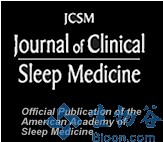
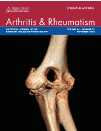
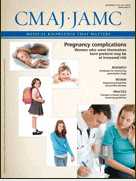
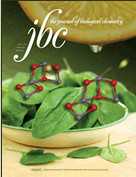
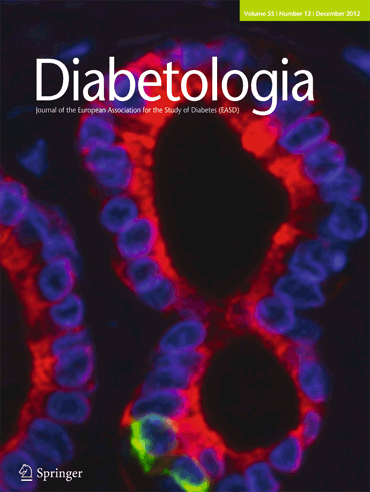




#BMJ#
65
#呼吸道#
113